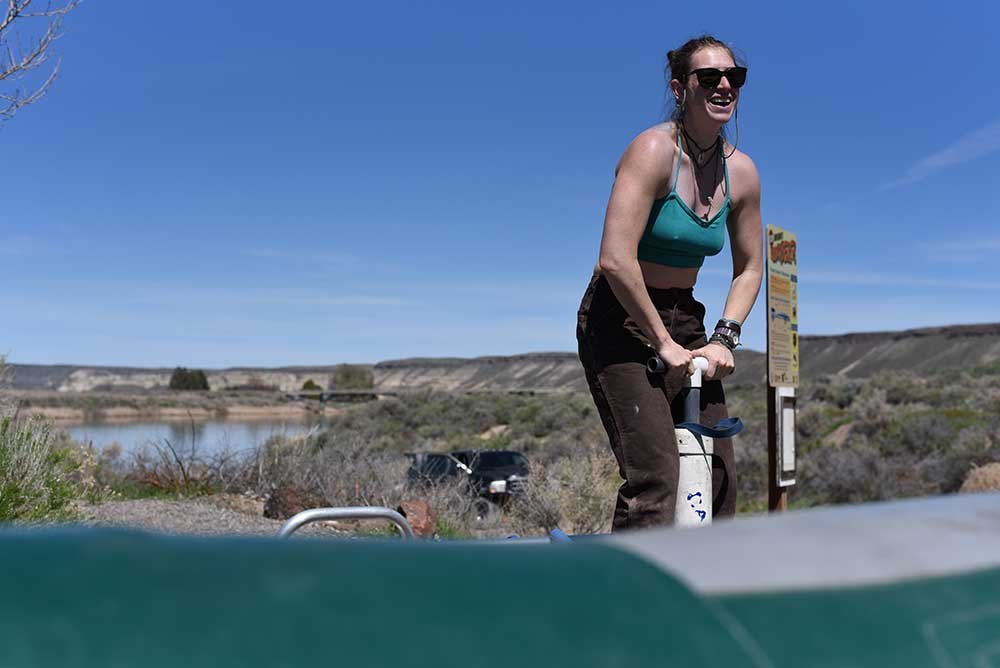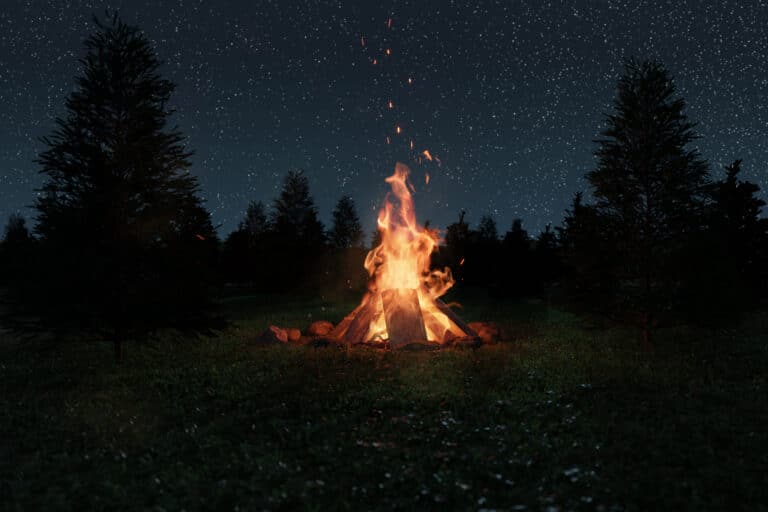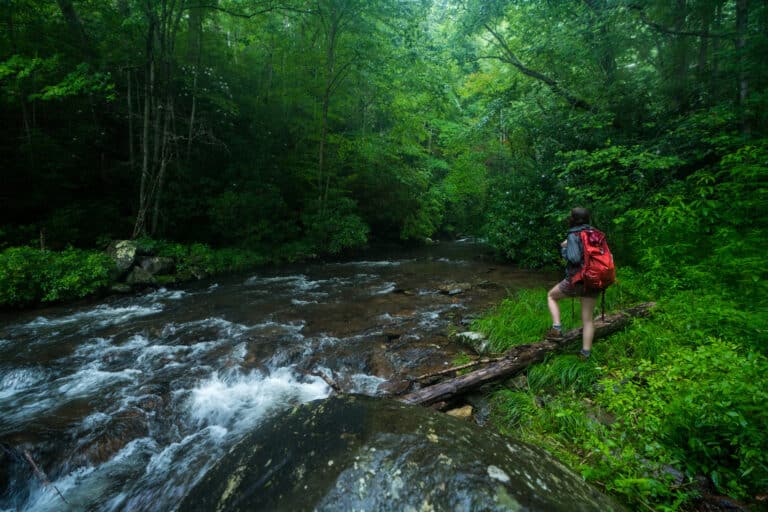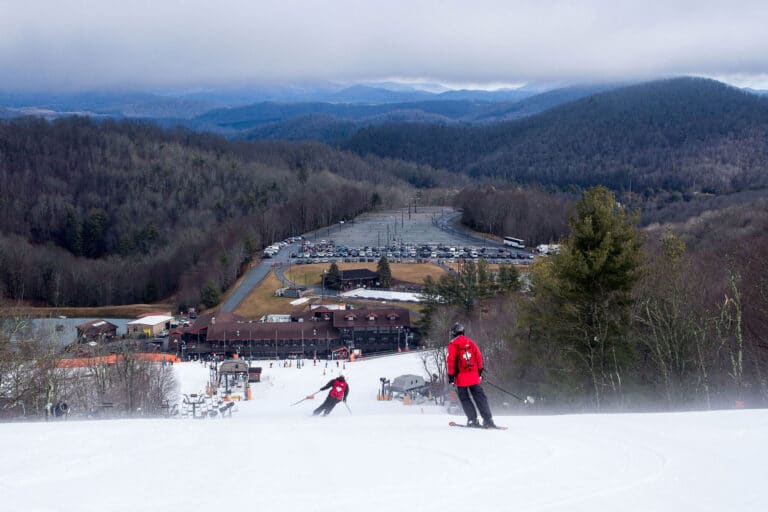The Outfitting Industry A River Guide Reflects on a Discussion on Sexual Harassment and Sexism at the Most Recent America Outdoors Conference
All photos by Emerald LaFortune during a women guide training trip.
About three years ago, my Middle Fork Salmon crew and I were about to serve the last night’s dinner. Steak and home fry potatoes were sizzling, and I stood with my arms propped on one of the outfitter tables, enjoying the look of a meal well prepared.
My trip leader and manager joined me, placing his cocktail next to mine.
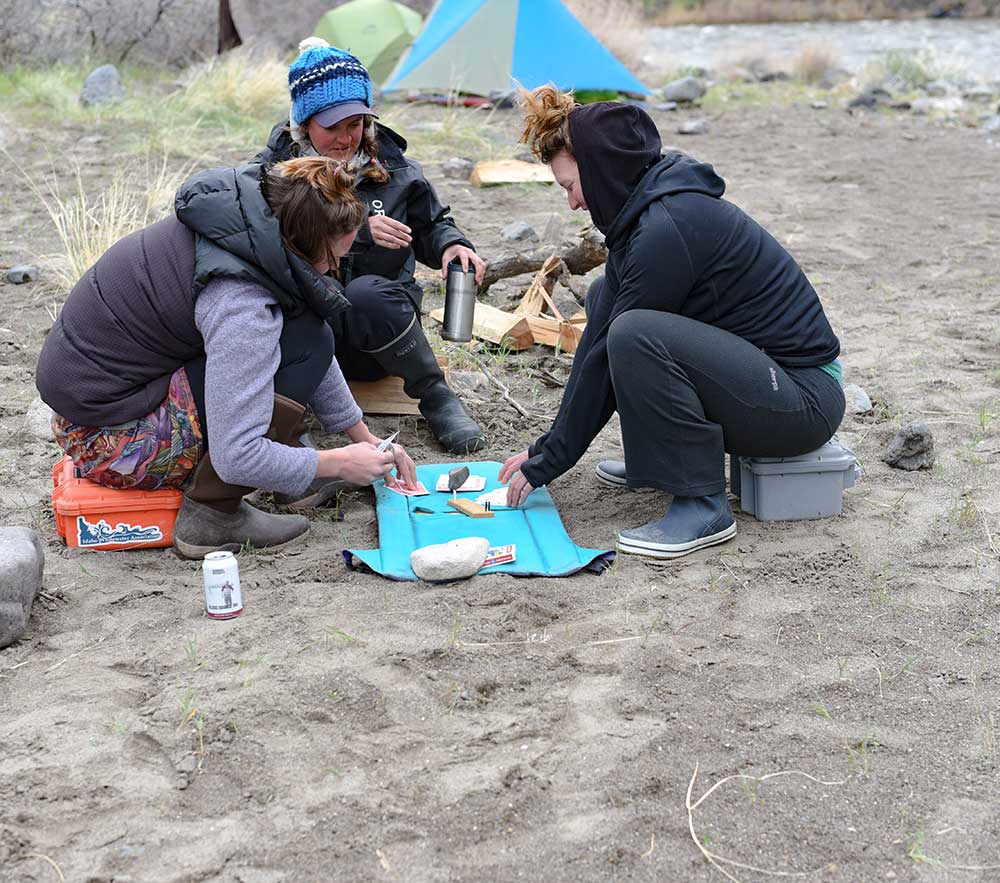
“You know,” he said out of the blue. “I could’ve slapped Emerald in the ass as I walked up, but I didn’t.”
The other guide and I looked at him quizzically.
“Uh, what the hell are you talking about?!” said the male guide standing in the kitchen.
“I mean, I remember when we used to all slap each others butts all the time! And the most enthusiastic participator was Anita* (name changed) and so that makes it pretty confusing. If she was doing it to me, doesn’t that mean I was okay to reciprocate? Emerald, what do you think?”
I found my half-grimace smile.
“You know what guys; we don’t want this meal to get cold. Let’s serve up,” I deflected.
While I’m often happy to have these conversations with the men in my work and life, this wasn’t the night. I had guests to take care of, it was the end of a long trip, and didn’t have the space to also care for a fellow guide.
—
Most female-identifying guides will tell you that if they aren’t being sexually harassed on the river, they’re sure to be answering questions about it from both guests and fellow guides. While sexism, sexual harassment, and even sexual assault have been part of women’s experiences in the outdoor industry since they first arrived at the boatramp or trailhead, the conversation around equity and inclusion has found new prominence as national conversations around these topics shift and grow.
I was intrigued to see how America Outdoors would address this topic under a more formal education lens during their 2019 December conference. From a women’s specific pre-conference workshop, to sitting on a panel about sexism in guiding, to the opportunity to have conversations with managers and owners from across the country, I wondered how this conversation would feel in Salt Lake. Begrudging? Enthusiastic? Nervous? It was my first AO. So outside of my own Idaho community, it was also my first chance to meet many of the participants that regularly travel cross country to attend.
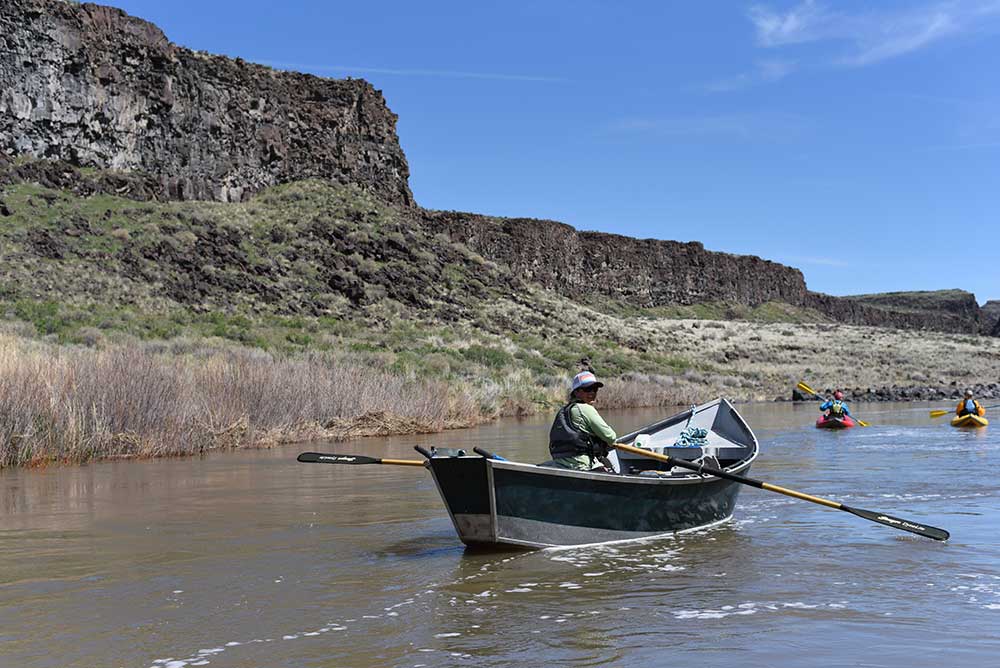
—
On Monday morning, after a long, lost wander around what SLC has accurately named a “Salt Palace”, I found the Women’s “Igniting Innovation” workshop. Laura Adams, an accomplished guide and the keynote speaker the following day led us in a day-long design thinking exercise. Refreshingly, the group problem solved not just on women’s empowerment, but also staff retention and creating exceptional client experiences. This highlighted the issue statement of the women’s empowerment group, “Without a balanced and inclusive leadership model, the outdoor industry has less collective potential to meet the changing needs of our community.”
Listening to the other women share out their ideas for creating more staff retention and creating better client experiences, the collective potential of these women was certainly highlighted. There was great discussion around how women, many of us white, could make sure our work was expanding out into many other marginalized groups, not just support other white women. Many of the participants had highlighted wanting to get to know some of the different women leaders in outfitting, and working together on problem solving was a great way to do just that.
Yet Adams hit a roadblock when she started suggesting next steps. How could we move forward with our goals? Who would cultivate the Facebook group? Who would volunteer to get women in their area together, or host a webinar? There was silence. I don’t think this is because this group of women is lazy, or unenthusiastic about mentorship and community. I think the session itself highlighted a tricky challenge. There we all were, the day before the conference even began, already working through and solving problems. While the male partners we travelled with visited the planetarium, went for a trail run, or caught up on their email inbox, we did the emotional and mental work of thinking about how women and others could be better included in a traditionally very cisgender, heterosexual, male space.
I repeatedly heard women trying to unwind how to call men into the work of being more inclusive, without minimizing the voice of women’s experience when creating solutions. Unlike me, most women in the room were either managers or owners of small businesses. Those of all genders in this industry work harder than just about anyone I know, which is how I knew the women in the room have full plates. How can we move these goals forward when these leaders have a back and mind breaking workload? How do we call in meaningful social change?
It was easy to think back to all the women Idaho guides I’ve known who had moved out of the industry, citing burnout or a desire for more time with family. Staff retention. And there were all the trips when I had been the only female guide and a disappointed female guest had wondered, “Are there any more women on this trip?” Client satisfaction. It’s hard for all of us in the industry to get a clear view on how interconnected it is.
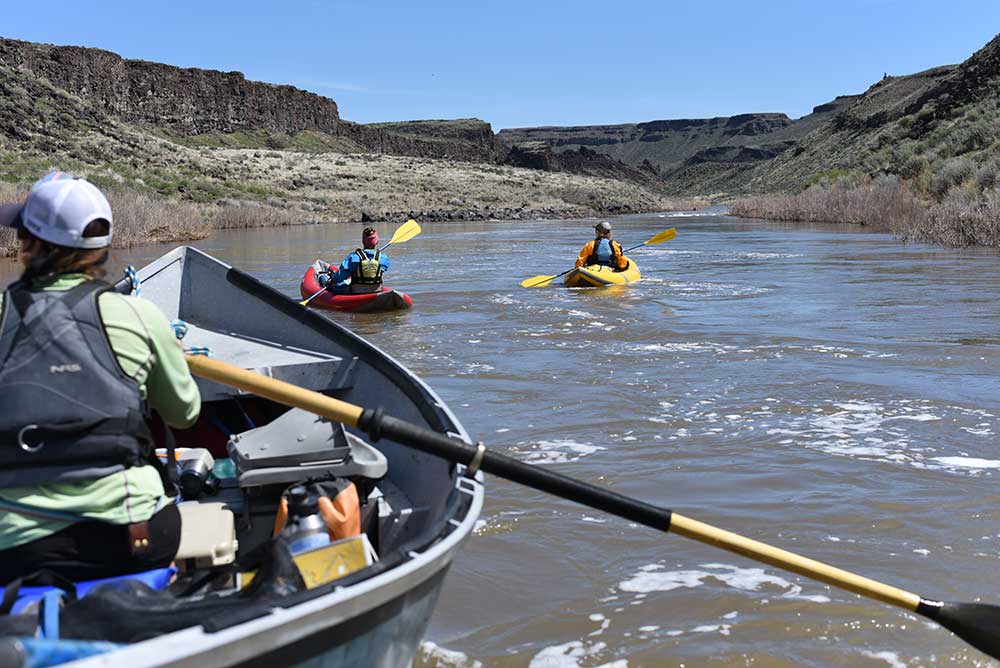
How do we make sure this work gets done, without burning out the women asked to bring their creativity and drive to potential solutions? How do we move beyond “Lean In” empowerment which puts the burden of change on those already experiencing a pay gap, confidence gap, and harassment? I don’t have all these answers yet, but as I looked around the room during the women’s workshop, the crowded women’s meetup the following day, and the panel on sexual harassment, I hoped we were on the right track.
—
“My best guides right now are women,” stated outfitter Zach Collier, midway through the Reading the Shifting Water: A Conversation about Sexism & Sexual Harassment in the Outdoor Industr session.
The night before, Zach was still uncertain if he should sit on the panel. He was joining Grand Canyon outfitter Alex Thevenin, Nantahala Outdoor Center Outpost Operations Manager Stephen Foy, and me on stage in a conversation facilitated by Emily Ambrose, of Engage Coaching & Consulting, a DEI educator out of Fort Collins, Colorado.
Demonstrating a hesitance I admired, (every female guide you know also has a story of her voice or suggestion being borrowed or overwhelmed by a male guest or guide), Zach wondered if he had anything to add.
I was glad Emily had the foresight to include two male outfitters on in the conversation, and glad I had participated in the workshop earlier that week.
“I heard a lot of women on Monday wondering how and when they could call men into the conversation,” I countered. “As Emily has set up here, I think it’s really important that we model how this conversation happens between genders. If you feel like you have nothing to add, chances are there’s a lot of other men in the audience in a similar place. And seeing your vulnerability and ability to admit your uncertainty is going to go a long way. You employ women, so you have to participate in this conversation at some level.”
Looking out at the audience before the panel began, I saw a few faces that made me nervous. In my decade in the guiding industry, and half-decade writing and educating on this topic, I had been brushed off in just about every way possible.
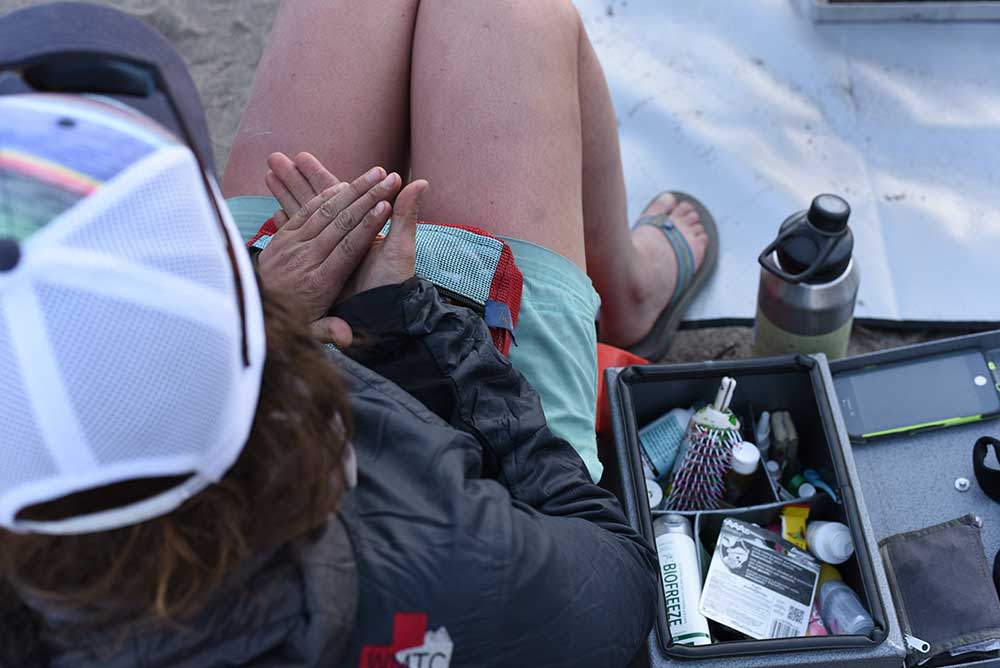
Trying to ruin all the fun.
Just too sensitive to be a good guide, bringing drama to the crew.
Asking for it.
Man-hater.
But the conversation that ensued was one of the more productive conversations I’ve ever seen occur in my industry around this topic. The audience questions were insightful, I learned from the other panelists, and Emily helped guide the conversation in a way that certainly showcased her skill as a facilitator. You can read more about the takeaway suggestions from that panel here. Overall, there was an energy and buzz in the room that suggested that there wasn’t anything to lose from having this conversation, but there was sure as hell a lot to gain.
—
If I’m frank, the outfitting industry is behind when it comes to diversity, equity and inclusion. I’m known to half-joke that it’s an issue anytime that I, a middle-class, white, cis-gender woman, is brought in to highlight “diversity”. Call it a product of our geographic isolation, or the exclusive history of outdoor recreation, but there is a lot of catching up to do. I predict that if we don’t reach out, as an industry, to those topics, that they are coming to us anyway. As many daily companies can already reflect, Generation Z is arriving to the outfitting industry as guests, staff, and guides. With this new generation comes an added emphasis on inclusive values and expectations of representation. Similar to the digital marketing space, those prepared to have tackle this head on will thrive. And in the words of a panelist quoting a fellow guide, “If you don’t like change, you’re gonna like irrelevance a lot less.”
Digital marketing and waivers are important, but so are the support of staff, guides, and guests. Outfitting is, after all, fundamentally a human-focused business. It doesn’t matter how well equipped your website SEO is, or how shiny your gear, it’s hard to run a thriving business without thriving people.
—
Had I had the energy that night on the river when my manager wanted a gold star for not sexually harassing me, I could’ve pulled him aside and explained where I was coming from. Sometimes, I would’ve explained, women participate in the joking and harassment because being part of the joke is a whole lot less icky than being the target of it. Although the power dynamic is often different, men can be sexually harassed by women too. Just like cooking homestyle potatoes, I would’ve said, there is a lot of nuance and different approaches when it comes to this. You should talk to your female guides about this, but not when they’re about to serve dinner on night five of a trip. Don’t forget it’s uncertain and tough to lead these conversations, especially when the other person asking is gearing up for an argument.
But perhaps, if he had been given the chance to attend the 2019 America Outdoors conference, he wouldn’t have had to ask at all. I see the America Outdoors community ready to continue the tough DEI conversations needed to bring their businesses into the next decade. I hope it will continue to be a priority of the organization moving forward. I also hope the men in our industry will step up to be enthusiastic participants in making guiding a more inclusive industry for all.
—
Bio:
Emerald LaFortune is an Idaho whitewater and fly fishing guide, a writer and speaker, and a salmon/steelhead advocate for Idaho Conservation League. She lives in rural Salmon, Idaho with her partner and cowdog, Hank. You can find more of her work and sign up for her monthly newsletter at www.emeraldlafortune.com.
